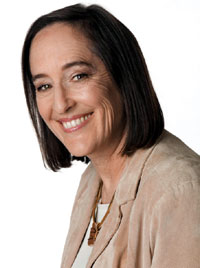Ask Ellen: Collaboration Is at the Heart of PLCs
Professional learning communities enhance knowledge and teamwork.
Your content has been saved!
Go to My Saved Content.Dear Ellen,
It seems as if everybody in education is talking about professional learning communities. How do you define "PLC," and how important do you think PLCs are to the future of education?
Delia
Dear Delia,
It does seem that the phrase "professional learning community" is on every educator's lips these days. Fortunately, this is one educational trend that has tremendous merit. Our challenge is to implement PLCs in a meaningful, rigorous way, and to ensure that they become deeply rooted in our school cultures. Trusting teachers' professional judgment is at the heart of professional learning communities.
In 1997, Shirley Hord and her colleagues at the Southwest Educational Development Laboratory published a study that outlined the characteristics common to effective teacher PLCs. A precondition for the implementation of effective communities is capacity building; teachers need some basic training in PLC processes and protocols, and they need regular time to participate in PLC activities.

Effective PLCs are characterized by shared leadership; principals may participate in teacher PLCs, but teachers run the show. Also, PLCs focus on student learning in concrete terms; They are more likely to be analyzing student work than reading academic articles. PLCs also concentrate on specific issues of daily teaching practice.
Finally, and most importantly, Hord found that effective PLCs are characterized by "visitation and review of each teacher's classroom behaviors, and results by peers, with feedback directed at individual and community improvement." The bottom line: In effective PLCs, every professional shares his or her results and opens his or her classroom to peers.
A lot of schools claim to be implementing PLCs but never quite achieve the level of deprivatization of professional practice Hord describes. These are the schools that will look back on PLCs a few years from now as another educational fad that came and went. On the other hand, schools that are pushing through the discomfort that comes with sharing individual results and practice are experiencing important shifts in school culture and student outcomes that will endure.
The organization that I direct has helped schools build PLCs for teachers and school leaders in a variety of settings. In the process, we have been documenting case studies of schools and school districts that have used PLCs as the foundation of major school-improvement efforts.
In Springfield, Illinois, grade level and/or subject-matter teams are meeting daily to plan and evaluate lessons, review student work and formative assessment results, and share individual feedback based on regular peer visitations. In Oak Grove, California, every teacher and administrator analyzes and takes responsibility for instruction by deeply understanding the program and progress of "focal students" -- three to five at-risk pupils -- in a system designed to make the school-improvement process more concrete and specific.
Here, "Deprivatization of practice" is a mantra, as everyone, from the superintendent to the newest teacher to the head of maintenance, is expected to be forthcoming in sharing results and in soliciting feedback and advice. Districts like Springfield and Oak Grove are producing encouraging results and are transforming district and school cultures.
Delia, I applaud your interest in PLCs. Building a PLC at your own school is not rocket science. You don't need expensive outside consultants or years of study. What it takes is having the understanding and vision that we are all professionals and learners, and that our job is to support and assist everyone in moving forward.
I encourage you to seek out some of the many good resources that are out there to help you and your staff learn the simple protocols and systems that schools adopt in support of PLCs, and advise you and your staff to identify, visit, and observe a few schools that have implemented powerful PLCs.
Ellen Moir is a veteran bilingual teacher who is focused on the challenges faced by new teachers as well as on the needs of those with long careers in education. She is also the executive director of the New Teacher Center, at the University of California at Santa Cruz, a resource for educator-induction research, policy, and practice.
Professional Learning Communities: Tips for the Perfect PLC
I recently had the opportunity to visit a high-performing professional learning community at Tyrrell Elementary School, in Hayward, California. When I asked the literacy partner teacher, Phillip Newport, what he thought are the ingredients of a high-functioning PLC, he gave me the following list:
- Sites need a space where professional learning and development can take place.
- Sites need an administrator or team that is open and guiding.
- All teachers and individuals are valued and are open to learning every day.
- Grade-level collaboration and planning is valued, and teachers feel ownership of their collaboration and have a say in what they are focusing on.
- Self-reflection and group reflection happens consistently in order to bring about positive change.
- Inquiry and analysis of results happens often and assists in guiding grade-level articulation and informs instruction.
- The goal is to meet the needs of all students and have confidence that they can succeed.
- We value each other and give recognition of successes we are having as individuals, as grade-level teams, and as a whole staff.